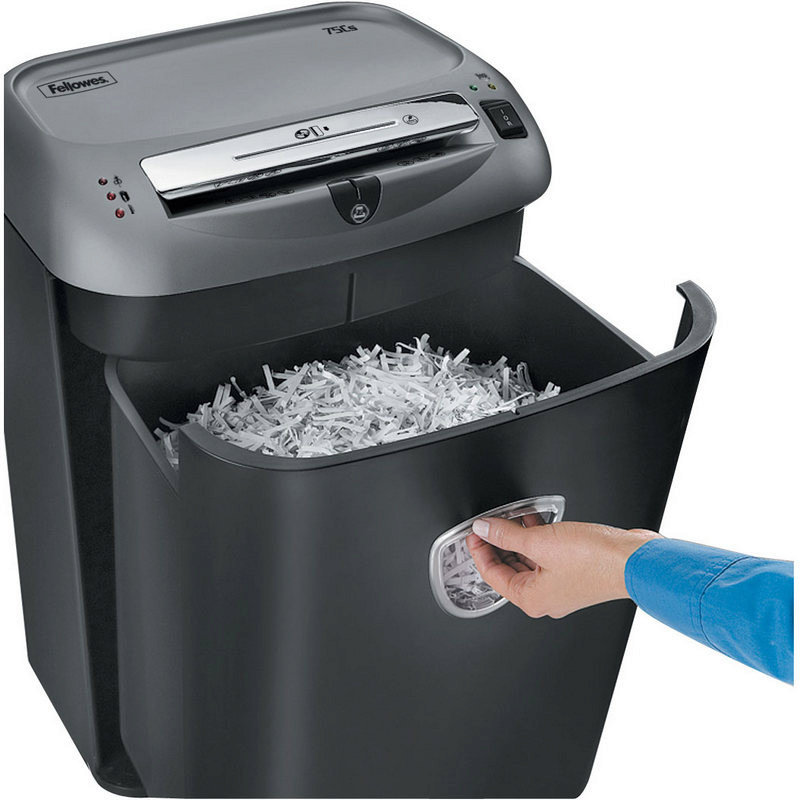
Title: Data Security: Exploring the Role of Shredders in Office Security
In today's digital age, data security and privacy are paramount concerns for businesses of all sizes. While cybersecurity measures receive a lot of attention, the physical security of documents remains equally important. Paper shredders play a critical role in protecting sensitive information by securely shredding sensitive documents. In this review, we'll look at the different models of paper shredders and highlight their importance in maintaining data security and privacy in the office.
Understanding Paper Shredder Models:
-
Shredders for cutting strips:
- Belt shredders are one of the most common types of paper shredders that cut documents into long, narrow strips.
- They provide basic security by rendering documents unreadable, but shredded stripes can still be recovered with sufficient effort.
- Belt shredders are suitable for the disposal of confidential documents or materials with low security requirements.
-
Cross cut shredders:
- Cross-cut shredders provide greater security by cutting documents into smaller, confetti-like pieces.
- They provide increased protection against data theft because shredded particles are more difficult to collect back in comparison to belt shredders.
- Universal shredders are ideal for shredding sensitive documents that contain personal or confidential information, such as financial statements, customer data, or internal documents.
-
Micro-cutting shredders:
- Micro-cut shredders provide the highest level of security by shredding documents into tiny, unreadable particles.
- They provide superior protection against identity theft and unauthorized access to sensitive information because the shredded particles are virtually impossible to recover.
- Micro-cut shredders are recommended for organizations that handle highly sensitive documents or have strict data privacy regulations.
Importance of Shredders for Office Security:
-
Preventing data leaks:
- Paper shredders help prevent data breaches by securely disposing of sensitive documents that are no longer needed.
- By destroying documents containing personal or confidential information, businesses can reduce the risk of unauthorized access, identity theft, and corporate espionage.
-
Data Privacy Compliance:
- Many industries have strict data privacy regulations that require the secure disposal of sensitive information.
- Paper shredding devices play a critical role in regulatory compliance efforts, ensuring that sensitive documents are destroyed in accordance with regulatory requirements such as the General Data Protection Regulation (GDPR) or the Health Insurance Portability and Accountability Act (HIPAA).{64 }
-
Intellectual property protection:
- Destruction of proprietary documents and trade secrets helps protect intellectual property and confidential business information from competitors and unauthorized disclosure.
- By securely managing confidential materials, businesses can maintain their competitive advantage and the integrity of their intellectual assets.
-
Maintaining Customer Trust:
- Demonstrating a commitment to data security and privacy builds trust with customers, partners and stakeholders.
- By implementing proper document disposal practices, businesses can reassure customers that their personal information is being handled responsibly and securely, enhancing overall brand reputation and customer satisfaction.
Choosing the right shredder for your office:
-
Security requirements assessment:
- Assess your office's security needs and the confidentiality of the information being processed to determine the appropriate type of shredder (belt, cross-cut, or micro-shredder).
- When choosing a shredder model, consider factors such as document volume, shredding capacity, and safety level.
-
Consider Operational Efficiency:
- Choose a shredder with enough capacity and runtime to meet your office's document shredding needs.
- Look for features like automatic shredding, jam prevention, and quiet operation for increased efficiency and ease of use.
-
Assess space and budget constraints:
- When choosing a shredder model, consider the available space in your office and budget constraints.
- Choose a shredder size and configuration that suits your workspace and provides the best value for your budget.
-
Overview of additional features:
- Consider additional features such as shredder hopper capacity, overload protection, and energy-saving modes for added convenience and functionality.
- Look for shredders with advanced security features such as shredder lock, PIN codes, or automatic shutdown to prevent unauthorized access and improve data security.
In conclusion, paper shredders play a vital role in maintaining data security and privacy in the office by securely disposing of sensitive documents. By understanding the different types of shredder models and their security features, businesses can choose the right shredder for their specific needs and effectively reduce the risk of data leaks and unauthorized access. Implementing proper document disposal practices not only helps ensure compliance with data privacy regulations, but also protects intellectual property, maintains customer trust, and improves overall office security.






